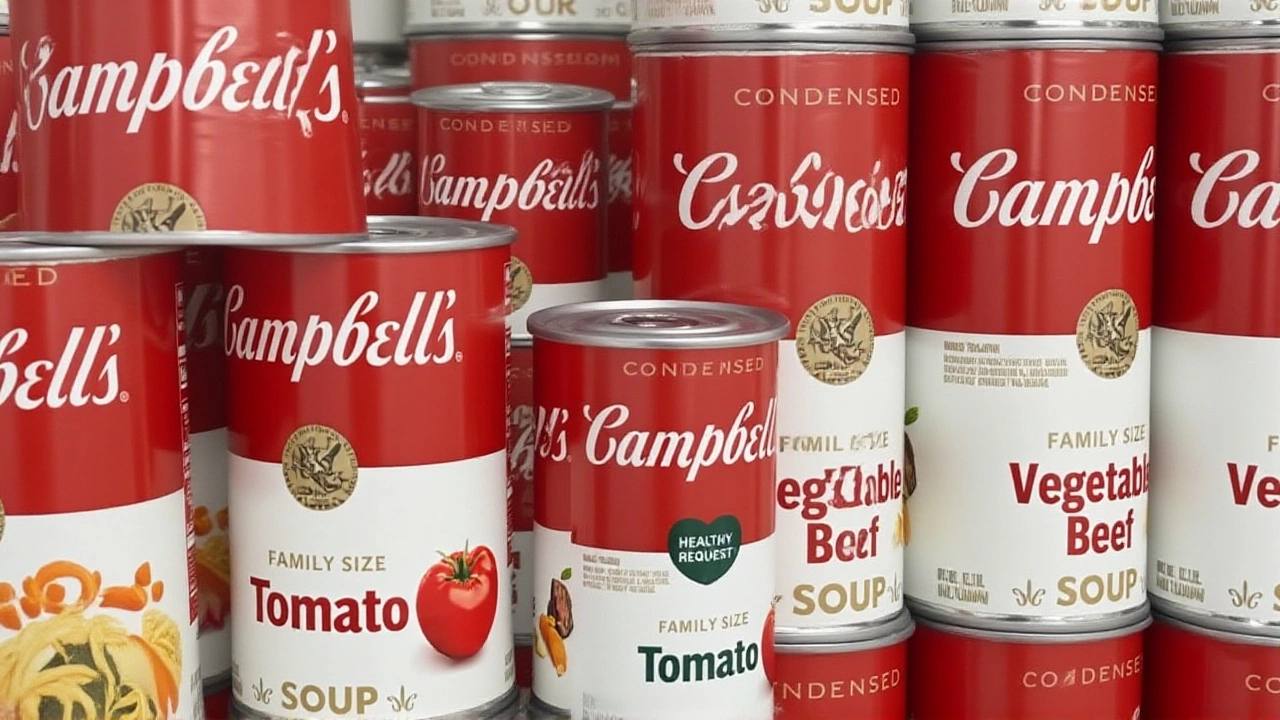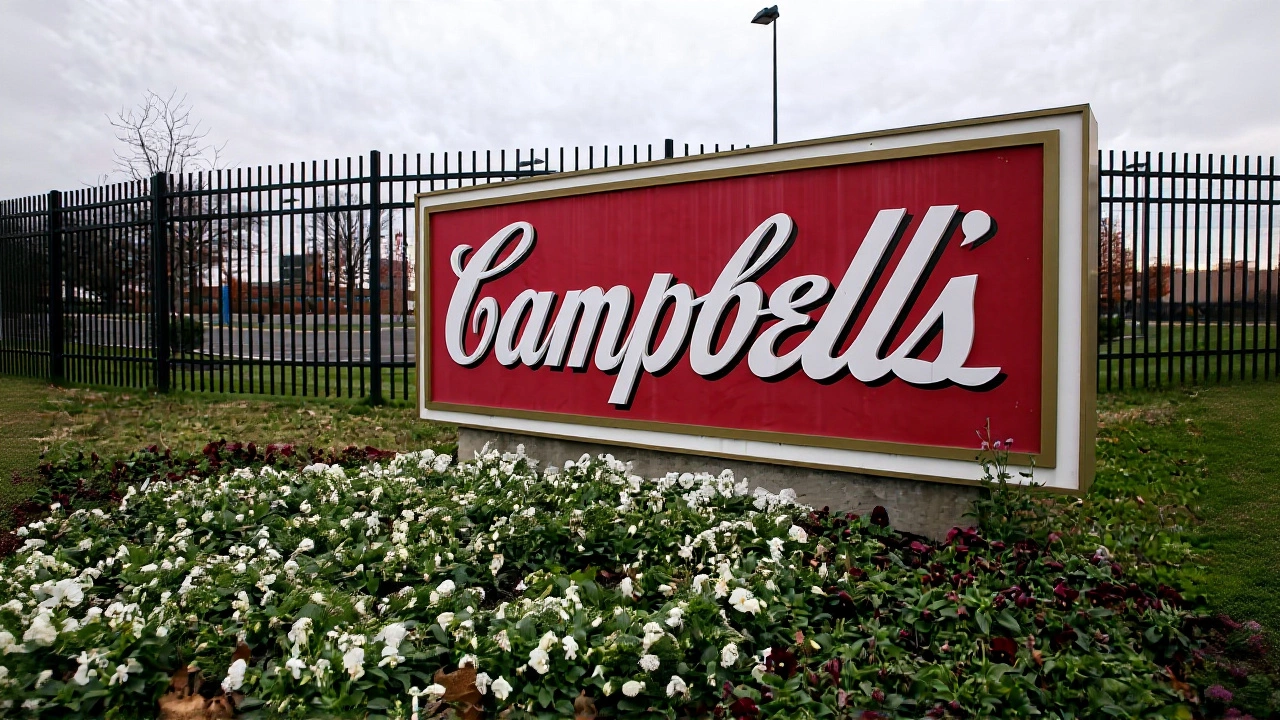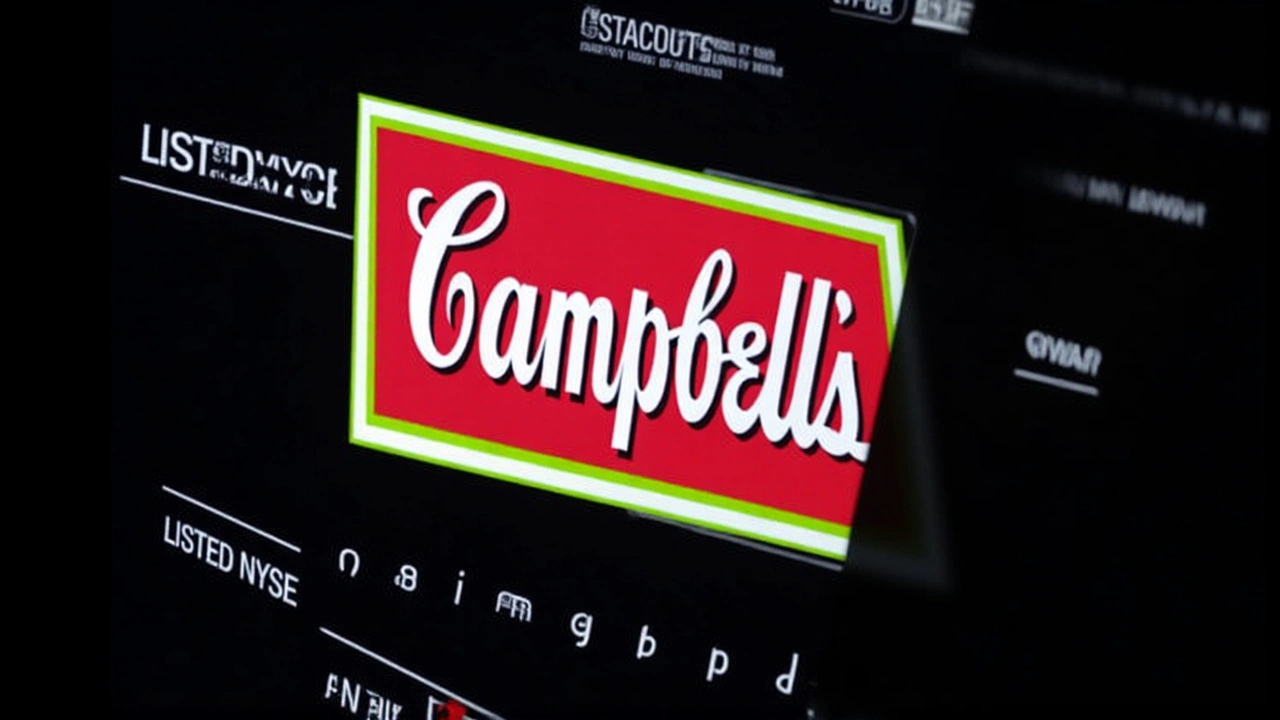
When Martin Bally, vice president and chief information security officer at Campbell Soup Company, was placed on administrative leave in November 2025, no one expected the reason to be a secret audio recording that would ignite a firestorm across social media. The recording, made by former security analyst Robert Garza, allegedly captures Bally mocking Campbell’s soups, denying the origin of its chicken, and making viciously racist remarks about Indian employees—all while sitting in a remote meeting from his home office. The fallout wasn’t just internal. It reached the Florida Attorney General’s office, sparked consumer boycotts, and forced a 156-year-old brand to defend its very identity.
The Recording That Shook a Legacy
Garza, who worked remotely for Campbell Soup Company out of his home in Michigan starting in September 2024, says he recorded the meeting—intended to be a salary review—because something felt off. "I trusted my instinct," he told Local 4 Detroit. "I felt sick after he started talking. Pure disgust." The hour-long, 15-minute audio, reportedly captured between September 2024 and January 2025, includes Bally saying: "We have s--t for f**king poor people. Who buys our s--t? I don't buy Campbell's products barely anymore. It's not healthy now that I know what the f---'s in it." He allegedly dismissed the company’s chicken sourcing, claiming: "Bioengineered meat—I don't wanna eat a piece of chicken that came from a 3-D printer." That directly contradicts Campbell Soup Company’s public stance that its chicken comes from "long-trusted, USDA-approved U.S. suppliers." The company responded by calling those claims "patently absurd," but the damage was done. The audio went viral.
Racist Remarks and a Toxic Culture
But the most disturbing parts weren’t about soup. They were about people. According to reports from ClickOnDetroit and Business Insider, Bally allegedly said: "F---ing Indians don't know a f---ing thing," and "Like they couldn't think for their f---ing selves." Garza, who is not Indian himself, said he was stunned by the outburst. "He didn’t think he was being recorded. He thought he was talking to a peer. That’s what made it worse." Garza also alleged Bally admitted to regularly consuming marijuana edibles before work. "He said he needed it to get through the day," Garza told his attorney. "He didn’t seem ashamed. He seemed proud of it." The company has denied any knowledge of Bally’s behavior and insists he had no role in product development or sourcing. "He’s in IT," a spokesperson said. "He has nothing to do with how we make our food." But that distinction didn’t matter to the public. When you’re the VP of cybersecurity for a Fortune 500 company, your words carry weight—especially when they’re tied to your position.
Retaliation and Silence
Garza reported Bally’s comments to his direct supervisor, Aupperle, in January 2025. He says he received no follow-up. No HR meeting. No internal review. Nothing. Ten days later, on January 30, 2025, he was terminated. The official reason? "Performance issues." Garza’s lawsuit claims it was retaliation—and that his firing was part of a broader pattern of racial hostility within the company’s remote workforce.
It took him 10 months to find another job. "I had to explain why I was fired from Campbell’s," he said. "Every recruiter asked. Every interview turned into a defense." He’s now suing for wrongful termination, emotional distress, and a hostile work environment.

Public Outrage and Government Action
By November 25, 2025, the audio had been shared over 2.3 million times on X (formerly Twitter) and TikTok. Hashtags like #CampbellSoupScandal and #BoycottCampbells trended globally. Consumer groups called for boycotts. Social media influencers posted videos of themselves dumping Campbell’s soup down the drain. A petition demanding Bally’s prosecution gathered over 400,000 signatures in two weeks.
Then came the hammer: James Uthmeier, Florida’s Attorney General, announced a formal investigation into Campbell Soup Company’s ingredient sourcing practices. "If a company is lying about what’s in its food—especially when it targets families and children—that’s not just unethical. It’s potentially illegal," Uthmeier said. The investigation could trigger FDA scrutiny, class-action lawsuits, or even criminal charges for false advertising.
The Company’s Damaged Reputation
Campbell Soup Company, founded in 1869 and headquartered in Camden, New Jersey, has spent decades building trust around its iconic red-and-white cans. Its soups have been staples in American pantries through wars, recessions, and pandemics. Now, it’s being asked: How could someone this toxic rise to VP? Why wasn’t this caught sooner? And what does it say about the culture that allowed it?
The company’s statement—"We are proud of the food we make, the people who make it, and the high-quality ingredients we use"—felt hollow. It didn’t address the racism. It didn’t acknowledge the retaliation. It didn’t even mention Garza by name.
Meanwhile, Bally’s contradictory comments on the recording—"Campbell’s is a good f***ng place. They take care of their f***ng people"—ring as bitterly ironic. Garza described him as having "no filter," and believing "he’s a C-level executive... and he can do whatever he wants." That mindset, if widespread, is the real threat to the brand.

What Happens Next?
The Campbell Soup Company says it’s conducting an internal investigation. But with the audio unverified by independent sources and no transcript released, skepticism runs high. Legal experts say Garza’s case is strong: he has a recording, a timeline, and a clear pattern of retaliation. If the court allows the audio into evidence, it could become a landmark case in workplace harassment law.
Meanwhile, the company’s stock dipped 8.7% in the week after the story broke. Sales of its condensed soups fell 12% in the Northeast and Midwest—regions where its customer base is oldest and most loyal. Analysts warn this could be the beginning of a long-term erosion of trust.
For now, Bally remains on leave. Garza is rebuilding his career. And Campbell Soup Company is left trying to answer one question: Can a brand built on comfort survive when its leadership betrays its values?
Frequently Asked Questions
How did the recording become public if it wasn’t filed in court?
Garza’s attorney shared an apparent copy of the audio with Business Insider, which chose not to publish it directly but confirmed its authenticity to other outlets. The recording was later leaked to social media by an anonymous source, likely someone within the company’s legal or HR team. Without being formally filed, it bypassed court restrictions and spread rapidly across platforms like TikTok and X.
Is Campbell Soup Company being investigated for false advertising?
Yes. Florida Attorney General James Uthmeier launched a formal probe into whether Campbell misrepresented its chicken sourcing after Bally’s claim that the meat came from a "3-D printer." While the company insists its suppliers are USDA-approved, the investigation could examine whether marketing materials contradict internal knowledge. If proven, penalties could reach millions in fines and mandatory labeling changes.
Why didn’t HR act after Garza reported the comments?
Garza says he reported the incident to his supervisor, Aupperle, in January 2025, but received no response. No meeting, no investigation, no documentation. This lack of action is central to his wrongful termination claim. Internal documents obtained by Business Insider show HR received no formal complaint from Garza—raising questions about whether the company’s reporting system is broken or intentionally ignored.
Could Martin Bally face criminal charges?
Criminal charges are unlikely unless prosecutors can prove the recording was obtained illegally. In Michigan and New Jersey, one-party consent laws allow secret recordings if the recorder is part of the conversation—which Garza was. However, if Bally’s remarks about race are deemed hate speech under federal workplace laws, he could face civil penalties or be barred from executive roles. The Department of Labor is monitoring the case closely.
What does this mean for remote workers in large corporations?
This case highlights a dangerous blind spot: remote employees often lack oversight, making them vulnerable to toxic behavior—and less likely to be believed when they speak up. Garza’s experience shows that even with a recording, retaliation can follow. Companies now face pressure to implement mandatory bias training, anonymous reporting channels, and real-time monitoring tools for remote leadership.
Has Campbell Soup Company apologized?
No. The company called Bally’s comments "unacceptable" but never directly apologized to Garza, to its Indian employees, or to consumers. No public statement addressed the racism. No executive has met with affected staff. That silence is fueling the backlash more than the original remarks. In today’s climate, not apologizing is often seen as worse than the offense itself.
